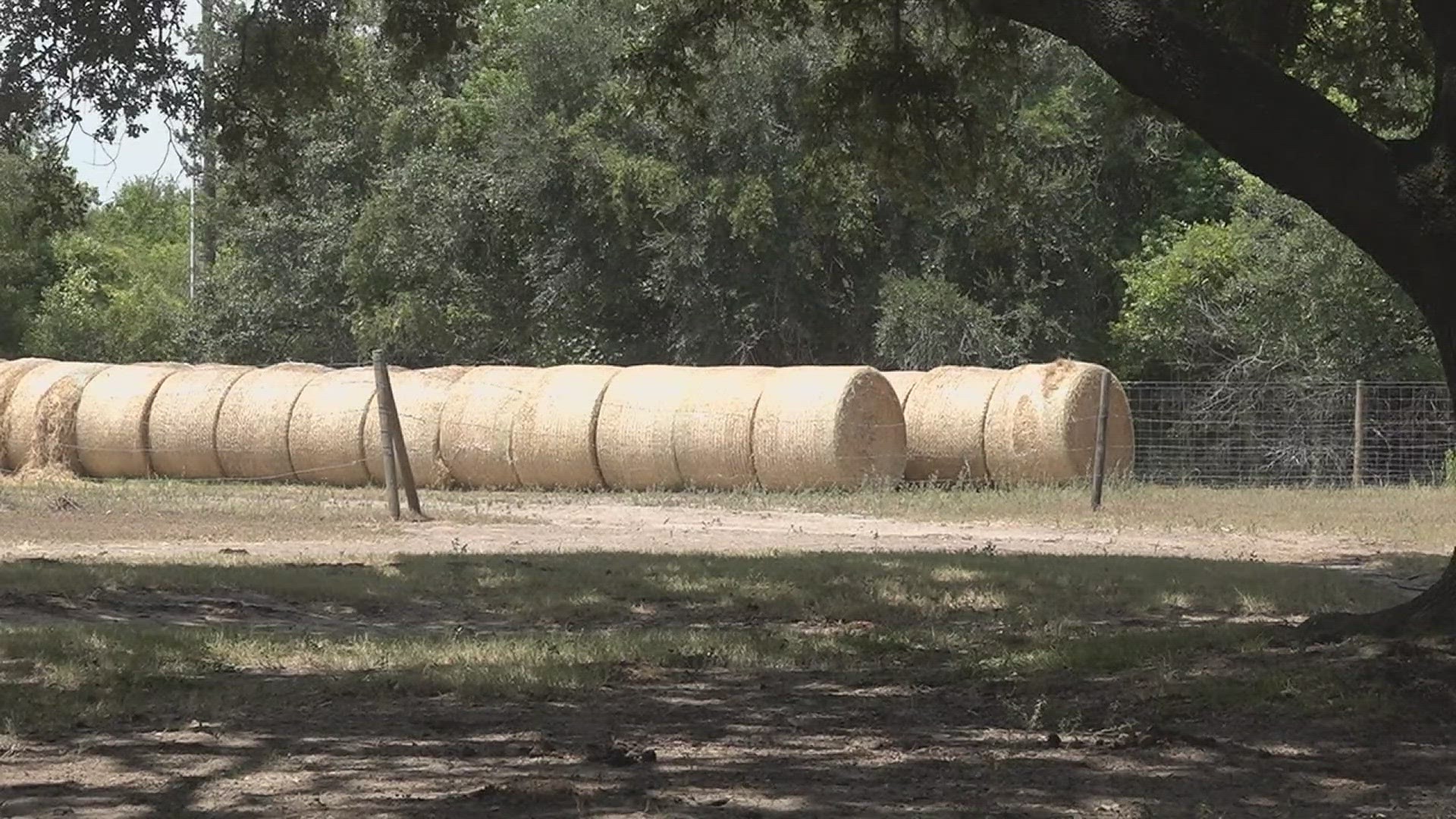BEAUMONT, Texas — Southeast Texas farmers and ranchers could face long term effects and devastating consequences from the extreme drought.
There's a shortage of grass for cattle to graze on and some have decided it's better to sell than to wait it out. The problems could possibly extend into the winter, producing a months long hay shortage.
Beaumont Rancher Chuck Kiker at Oak Knoll Farm tells 12News he has never seen a Southeast Texas drought like this. It's so bad he says it's hard to find enough grass for his cattle to graze.
"Through the winter is when it's really gonna be tough. Cause we didn't make any grass to help us make it through the winter," said Kiker.
12News visited his ranch and could see dozens of cattle huddled under the shade of a tree, trying to find relief from the heat. They've started grazing at night.
"I don't know that west Jefferson County has ever been this dry," Kiker said.
Kiker says the grass is being dried up and not re-growing without rain. He's having to use his winter supply of hay now.
He has had his farm since 1980 and this is the first time he's having to use his winter supply of hay during the summer.
"I'm feeding hay right now to supplement the grass that's here. And it's gonna throw most ranchers in a pretty good bind through the winter," Kiker told 12News.
Less food means less energy for cows to feed their young.
"The guys that have cows, a lot of them are pulling their calves off early right now. So it'll be easier on the cows to maintain body weight or even gain a little weight," said Kiker.
This is why some ranchers have decided it's time to sell rather than find alternative food sources, Kiker suggests.
This drought and food shortage may have an impact on reproduction.
"They wont breed back as well, so you won't have as many calves next year. Like I said, I think we're in the lower numbers for the next year or two," said Kiker.
Even Kiker is tempted to sell his livestock.
"Calves are extremely high right now at the sell barn. So it's not such a bad deal for the rancher. They can go ahead and sell them and still come out pretty good," Kiker said.
But he's opting to keep his herd. According to the August USDA agriculture counts, there are 8% fewer cows at feed lots this year compared to last year. This is leading to inflation at the grocery stores.
"We still don't have enough cattle. Because people aren't able to build the herds back to pre-COVID levels. So I think you're gonna see high beef prices," said Kiker.
He hopes rain will help end the drought soon, but says this problem is happening all over the country.

